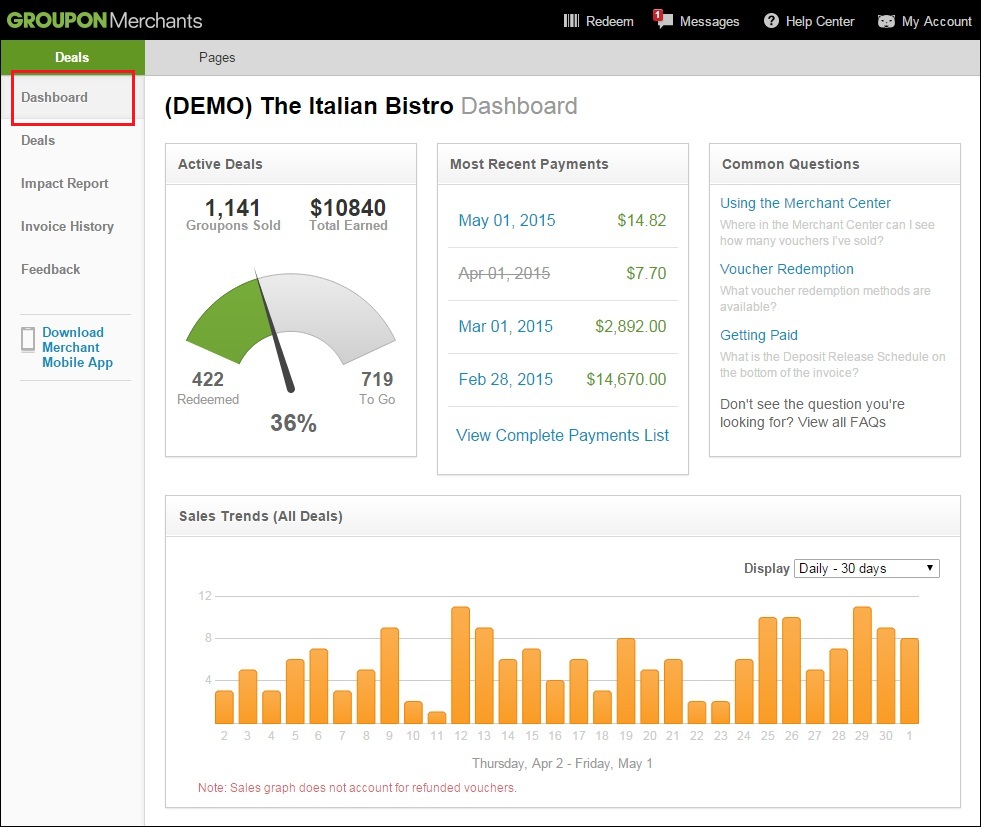

It's hard to restrict to new customers-and the people who already like your product are probably the most likely to use the coupon. But of course, it also has some drawbacks, both for the vendors and for Groupon. It has some virtues: you only pay for people who actually commit to come to your business. Which makes me think that Groupon is just advertising, and fairly expensive advertising. One study found that 32% of Groupon merchants lost money (with restaurants faring worst) and 40% said they wouldn't do it again even people who made money had staff problems due to high volume and, er, cheap tippers: Unless your restaurant has some abnormally fat margins, or your average Groupon buyer is a raging alcoholic, you're not likely to make very much money off such a deal, even if you're just filling surplus seats. Those people are going to nurse one drink and skip dessert, giving you a net loss. But keep in mind that even though this isn't a classic price discrimination strategy, a significant number of your customers are going to be price constrained-the sort of people who can't really afford to go to your restaurant unless they get a coupon. Sure, we might order drinks and dessert, adding $40 to that $10 you already got. As I understand it, the restaurant splits that $20 equally with Groupon, which means that they're now providing $40 worth of food for $10.

Take a typical $20-for-$40 worth of food restaurant deal. The duplicate deal can now be edited independently from the original.Yet the discounting is fairly expensive for the Groupon offerer. A duplicate of the Groupon deal is created and named Copy of.


 0 kommentar(er)
0 kommentar(er)
